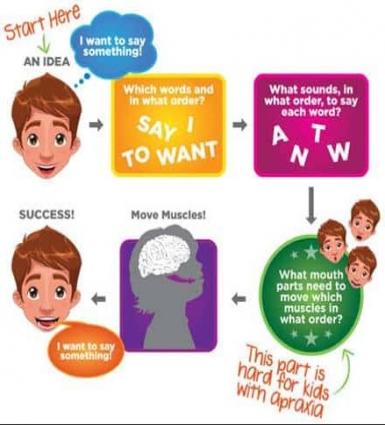- Home
- CHILDHOOD APRAXIA
Childhood apraxia of speech (CAS) is a label for a motor speech disorder in which a child’s brain has difficulty determining how and when to move the jaw, lips, and tongue to produce speech.
In essence, the brain has difficulty planning, writing and implementing directions to the muscles in order to tell them how and when to move.
Children with CAS are at high risk for developing difficulties with literacy (reading/writing) problems as a result of underlying difficulties with phonological and phonemic awareness skills (i.e., how to notice, think about and work with the sounds in words and spoken language).
Children with CAS typically have much higher receptive (understood) language than expressive (spoken) language due to difficulties with speech production.

